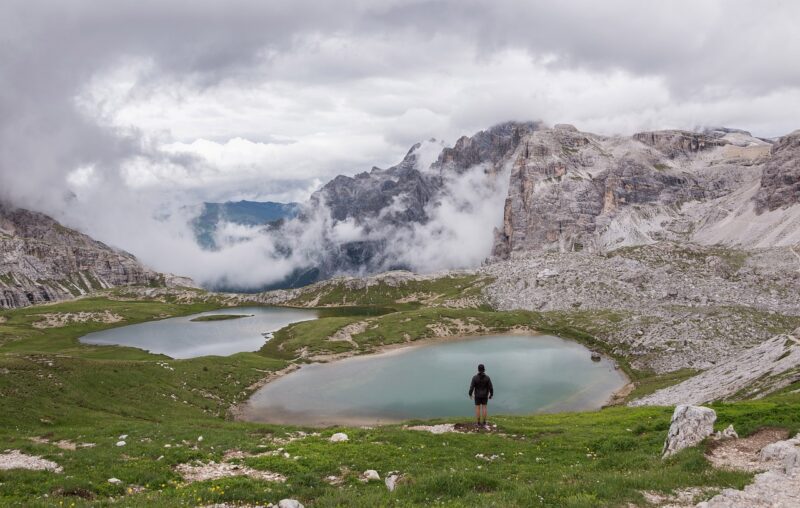
Hiking is more than just a nature walk; it’s an experience that allows individuals to reconnect with the outdoors, enhance their physical and mental well-being, and explore the beauty of the natural world. For many, hiking becomes a cherished pastime that promotes a healthier lifestyle and instills a sense of adventure. In this guide, we’ll delve deep into the numerous benefits of hiking and provide you with practical tips on how to get started.
1. The Physical Benefits of Hiking
Hiking is a great way to stay in shape and improve your overall physical health. It’s an effective way to strengthen lower body muscles while enhancing cardiovascular fitness. Some key physical benefits of hiking include:
- Improved Cardiovascular Health: Hiking elevates your heart rate, promoting better circulation and reducing your risk of heart disease. Regular hiking helps improve your overall cardiovascular endurance.
- Muscle Strengthening: The uneven terrain of hiking trails works various muscle groups, particularly in the lower body, including your quadriceps, hamstrings, calves, and glutes. Carrying a backpack can also add an extra workout for your upper body.
- Weight Management: Hiking burns calories, promoting weight loss or maintenance. The number of calories burned will vary based on your weight and the trail’s difficulty—but on average, hiking can burn anywhere from 400 to 700 calories per hour.
Aside from the more apparent physical advantages, the overall benefits of regular hiking can include improved balance, coordination, and flexibility.
2. The Mental Health Benefits of Hiking
Not only is hiking good for your body, but it also significantly benefits your mental health. The combination of physical activity, fresh air, and natural scenery contributes to a boost in mood, lower anxiety, and overall emotional well-being. The mental benefits include:
- Reduced Stress Levels: Spending time in nature allows you to escape the pressures of daily life and rejuvenate your mind. Studies have shown that outdoor activities can reduce cortisol levels, a hormone associated with stress.
- Enhanced Mood and Emotional Well-Being: Hiking releases feel-good hormones like endorphins, which can combat feelings of sadness and anxiety. This natural high can result in increased feelings of happiness and accomplishment.
- Increased Creativity and Problem-Solving Skills: Engaging in physical activity outdoors fosters creative thinking. A study found that spending just a few days in nature can enhance creative problem-solving skills by up to 50%.
Spending time surrounded by nature can also promote mindfulness, allowing you to focus on the present moment and enjoy the beauty around you.
3. Getting Started with Hiking
If you’re new to hiking, getting started can seem daunting. However, with a little preparation and knowledge, you can begin your hiking journey with confidence. Here’s how:
- Choose the Right Trail: Research local hiking trails and find one that suits your fitness level. Websites like AllTrails offer detailed information, maps, and reviews to help you choose an appropriate hike. Start with an easy or moderate trail before progressing to more challenging terrains.
- Wear Appropriate Gear: Invest in a good pair of hiking boots that provide ample support and traction. Comfortable clothing and moisture-wicking socks are essential to keep you dry, while layers allow you to adapt to changing weather conditions.
- Pack Essentials: Always pack essential items such as water, snacks, a first aid kit, a map or GPS device, a multi-tool, and sun protection (like sunscreen and sunglasses). Don’t forget to carry a fully charged phone and let someone know your itinerary.
- Stay Safe: Before heading out, check the weather forecast and trail conditions. Hike with a buddy whenever possible, and be aware of your surroundings. Follow Leave No Trace principles to minimize your impact on the environment.
- Enjoy the Journey: Take your time, soak in the surroundings, and appreciate the beauty of nature. Remember to take breaks and hydrate throughout your hike. Photograph and journal about your journey to cherish the experience later.
Hiking is about embracing the experience as much as reaching your destination. Whether you’re in it for the workout, relaxation, or adventure, every hike carries the potential for self-discovery and appreciation for the natural world.
4. Hiking as a Social Activity
Another great aspect of hiking is the social benefits it brings. Whether you’re hiking with friends, family, or joining a local hiking group, pursuing this activity together strengthens bonds and encourages camaraderie. Some benefits include:
- Shared Experiences: Beautiful views and shared challenges create lasting memories. Enjoying nature together fosters discussions and connections, enhancing relationships.
- Motivation and Accountability: When hiking with others, you’re more likely to stay committed to your outdoor adventure. You can encourage each other during challenging sections and celebrate accomplishments as a group.
- Building Community: Joining local hiking clubs or social media hiking groups offers opportunities to meet like-minded individuals, share trail recommendations, and participate in organized hikes, further enhancing your social life.
Group hiking can make the experience even more rewarding, as you’re surrounded by camaraderie in addition to nature’s beauty.
5. Conclusion
Hiking is a multifaceted activity that offers countless benefits to your physical and mental health while allowing you to explore the beautiful outdoors. Whether you’re a beginner or seasoned hiker, this enjoyable pastime can fit into any lifestyle. Start small, embrace the adventure, and soon you’ll discover the joys and rewards that come with each hike you take. With the right gear, good planning, and an open heart, hiking can lead to a lifetime of adventures!







